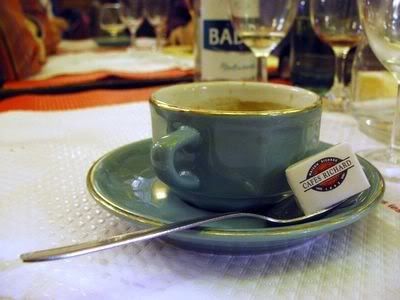Post by luckyluc on Jul 10, 2008 9:05:45 GMT -5
From a very interesting article in the newspaper Le Devoir.
The merchant navy with sails boats is back in our ports. Carried by the winds of the blaze of the oil prices, the fight against greenhouse effect and the nostalgia of a time when one took a little more his time, the old and modern sails boats will transport wine, but perhaps also soon oysters and jam.
This voyage will inaugurate the services of the new maritime Transport Company, which intends to use the form of merchant navy which had disappeared since the invention of the steamers and then giant container ships. Two roads, between Bordeaux and Dublin and between Bordeaux and Bristol, in England. Other connections should be established with European ports, and with the United States and Canada.
At a maximum cruising speed under veil of 14 nodes, they will go twice less quickly than the modern container ships, but they will emit seven times less gas causing greenhouse effect. The bottles transported will be marked with a gilded label surrounded by the message “Transporté à la voile, une meilleure solution pour la planète” “Transported on sail boat, a better solution for planet”.
Kept at an ideal temperature of 17 °C, the wines transported in the holds of the ships will also profit from a strange phenomenon in virtue of which pitching and rolling specific to the sailing ships would accelerate the ageing of the wine. Well-known at the time of the sailing boats, told Frederic Albert, this phenomenon led producers formerly of Bordeaux to offer their wine as ballast to the ships which left for abroad with an aim of recovering it after the voyage. This wine had even a name “Bordeaux retour”
A link to the original article, in French www.ledevoir.com/
The merchant navy with sails boats is back in our ports. Carried by the winds of the blaze of the oil prices, the fight against greenhouse effect and the nostalgia of a time when one took a little more his time, the old and modern sails boats will transport wine, but perhaps also soon oysters and jam.
This voyage will inaugurate the services of the new maritime Transport Company, which intends to use the form of merchant navy which had disappeared since the invention of the steamers and then giant container ships. Two roads, between Bordeaux and Dublin and between Bordeaux and Bristol, in England. Other connections should be established with European ports, and with the United States and Canada.
At a maximum cruising speed under veil of 14 nodes, they will go twice less quickly than the modern container ships, but they will emit seven times less gas causing greenhouse effect. The bottles transported will be marked with a gilded label surrounded by the message “Transporté à la voile, une meilleure solution pour la planète” “Transported on sail boat, a better solution for planet”.
Kept at an ideal temperature of 17 °C, the wines transported in the holds of the ships will also profit from a strange phenomenon in virtue of which pitching and rolling specific to the sailing ships would accelerate the ageing of the wine. Well-known at the time of the sailing boats, told Frederic Albert, this phenomenon led producers formerly of Bordeaux to offer their wine as ballast to the ships which left for abroad with an aim of recovering it after the voyage. This wine had even a name “Bordeaux retour”
A link to the original article, in French www.ledevoir.com/



 Let the riot begin! LOL -
Let the riot begin! LOL -  hahahha
hahahha